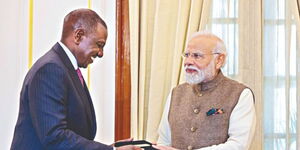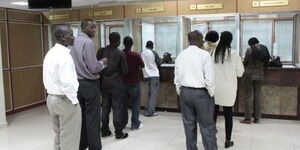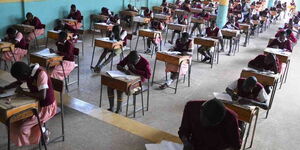The Kenya Bankers Association (KBA) has urged the government to reconsider the planned overhaul of Pay-As-You-Earn (PAYE) tax bands, warning that declining real wages could hurt economic stability, business confidence, and public trust ahead of the 2027 General Elections.
Speaking at the National Development Implementation Committee (NDIC) in Nairobi, KBA Chief Executive Officer Raimond Molenje said the private sector is especially vulnerable to political and economic instability.
“With about 20 months to the General Elections, we need stability before and after the polls, and central to this is restoring the lost purchasing power for Kenyans and businesses,” he said.
The bankers proposed scrapping the top two PAYE bands of 32.5 and 35 per cent, which the government currently uses. This, the bankers said, would help reduce the lowest band from 10 to 5 per cent, a decision that would reinstate the 20 per cent band and expand the 25 per cent band.
The changes, they argue, would leave households with more disposable income, spur consumer spending, and inject life into the Kenyan economy.
What It Means: Essentially, the recommendation aims to ease the tax burden for both high- and low-income earners while creating fairer middle bands, boosting household purchasing power, and promoting economic vibrancy, according to the association.
KBA said this would not only help businesses thrive but also stimulate sustainable growth across sectors.
As such, the association warned that failure to address declining real wages could trigger political and economic instability at a time when the country is seeking to turn around the economy.
Additionally, the bankers added that a failure in such would disrupt business operations, reduce public confidence in government, and hinder fiscal consolidation efforts.
At the same time, KBA also urged the alignment of the top PAYE rate with the corporate tax rate while reducing other rates, arguing that this would promote fairness and encourage investment.
The government has, in the past, committed to making adjustments and changes to the PAYE tax computations and other adjustments.
In April, the Cabinet directed employers to automatically apply all eligible tax reliefs and exemptions when calculating PAYE taxes for employees.
In July, the Kenya Revenue Authority introduced a new system that integrates PAYE filing with the Government Human Resource Information System (GHRIS), IFMIS, and the Central Bank of Kenya (CBK) through API connections, enabling seamless payment and filing of PAYE, the Affordable Housing Levy, NITA Levy, and other labour-related contributions.












